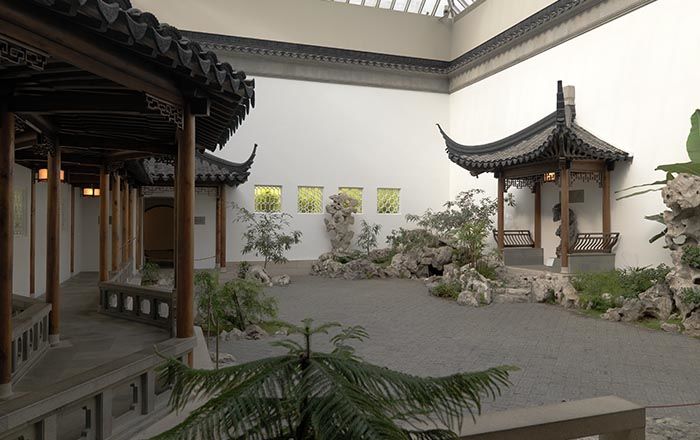Man in a Forest
Fu Baoshi Chinese
Not on view
Fu Baoshi did not devote himself fully to painting until after 1939, when he settled in the wartime capital of Chongqing, Sichuan. There, poverty-stricken and struggling to support a growing family, he painted with a fierce determination to succeed. Often, he created images of himself in the guise of tragic historical figures who were not adequately appreciated during their lifetime. In this work, dating to the early 1940s, he depicts himself lost in a thick grove of trees and bamboo. His inscription quotes lines from a poem by Du Fu (712–770):
Pity that the young pine trees cannot grow a thousand feet tall, So let the thicket of bamboo be cut down by the tens of thousands.
(Wen Fong, trans., Between Two Cultures: Late-Nineteenth- and Early-Twentieth-Century Chinese Paintings from the Robert H. Ellsworth Collection in The Metropolitan Museum of Art [New York: The Metropolitan Museum of Art, 2001], p. 121)
This image cannot be enlarged, viewed at full screen, or downloaded.
This artwork is meant to be viewed from right to left. Scroll left to view more.

